Ten stadiums throughout France will host the 51 matches at Euro 2016 and Ireland will play in at least three of them, Stade de France, Stade de Bordeaux and Stade Pierre Mauroy in Lille.
Northern Ireland will visit Nice, Paris and Lyon for their three group games with the opening fixture and final of the competition taking place at the majestic Stade de France.
Here is your guide to the Euro 2016 venues.
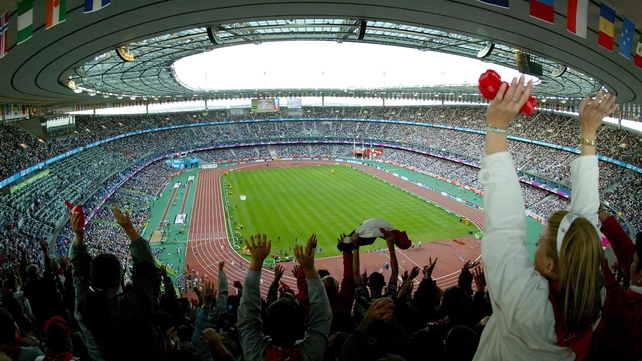
Stade de Frane (Saint-Denis)
Officially in Saint Denis, Stade de France is located just outside the Paris periphery. The stadium, built for the 1998 FIFA World Cup, is more of an event arena rather than a football one.
Supporters can find themselves a long way from the action in this 80,000 capacity venue but the fact that there will be upwards of 40,000 fervent Irish supporters in situ for the Sweden game on 13 June will make that particular game an event in itself.
The stadium will host the opening game of the tournament and, of course, the final, with France looking to replicate their 1998 World Cup success.
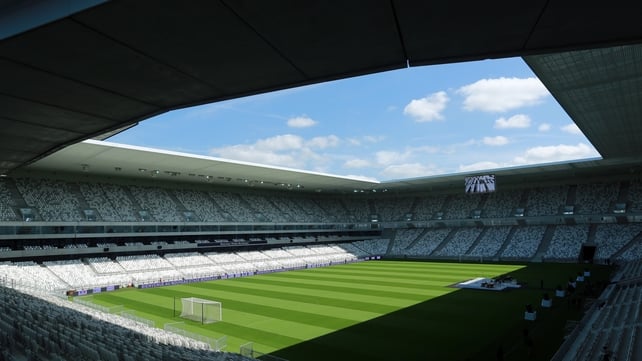
Stade de Bordeaux (Bordeaux)
The stadium was purpose built for the tournament, opened last summer and is now home to top-flight side FC Girondins de Bordeaux.
The capacity of the stadium is 42,000 and there is not a bad seat in the house in what is the perfect design for a football ground with the crowd virtually on top of the pitch.
The noise levels for the Ireland v Belgium group game will be hitting the highest decibel levels. Located outside the city on the tram line, Stade de Bordeaux is much more than a sports arena but a veritable work of art as the construction features a floating roof supported by 900 stanchions, designed to represent the region’s renowned pine forests.
The stadium has also been rewarded with a quarter-final fixture.
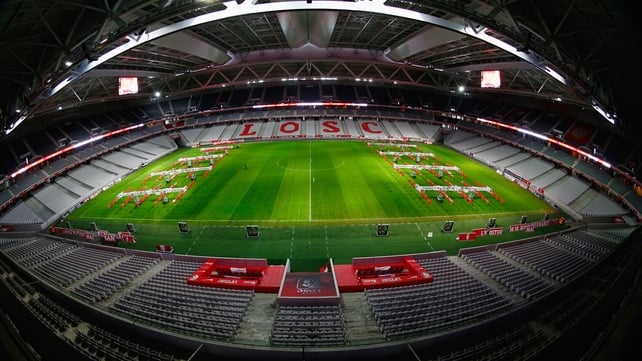
Stade Pierre Mauroy (Lille)
Home to Ireland’s final fixture of the group stages against Italy on 22 June, the stadium is located on the outskirts of Lille, but easily accessible by the driverless city metro.
Stade Pierre Mauroy is only four years old, and like the new Stade de Bordeaux, the venue is a real football stadium with a 50,000 capacity where you will feel like you are really close to the action.
The stadium has a retractable roof and the pitch can be raised for music concerts with French superstar Johnny Halliday playing a stadium concert there this summer.
The stadium was named after the former socialist politician, who was French prime minister in the 1980s and who was also mayor of Lille.
The stadium will also host a quarter-final.
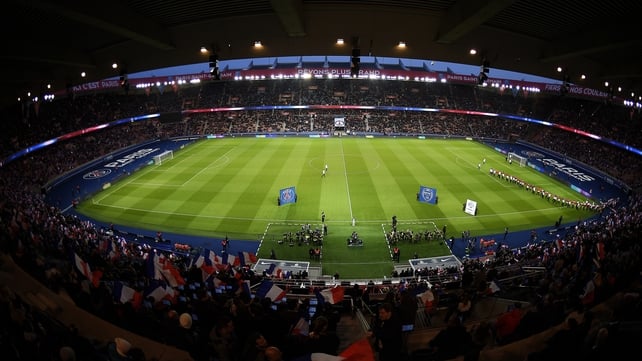
Parc des Princes (Paris)
The official Paris stadium in the tournament, Parc des Princes is home to French champions Paris Saint-Germain (PSG) and is located in the west of the city in the 16th arrondissement (district), close to metro Porte de St Cloud.
The 45,000-capacity stadium for Euro 2016 will host Northern Ireland’s final group game, against Germany on 21 June and four other tournament matches, including a round of 16 game.
The venue was once used for the finish of the Tour de France before moving to the iconic Champs-Élysées, while the stadium’s head groundsman is Antrim native Jonathan Calderwood.
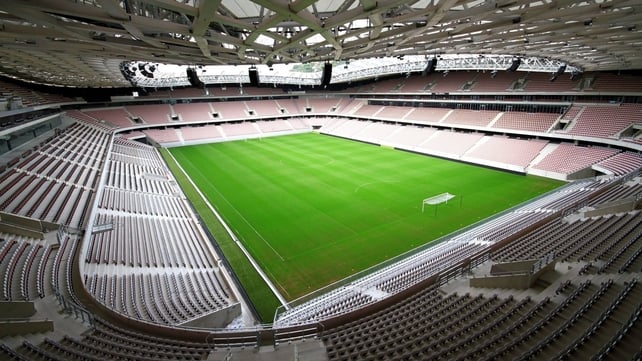
Stade de Nice (Nice)
Northern Ireland open their Euro 2016 campaign at the south coast venue, which is another newly built stadium, completed in 2013 and is now home to local side OGC Nice.
The stadium is one of the smaller venues being used in the tournament, at only 35,000 capacity, yet it should prove one of the most atmospheric, as it is another venue where the crowd will feel part of the action with no athletics track between the pitch and the stands.
The stadium is also very eco-friendly as it boasts upwards of 4,000 solar panels in the design.
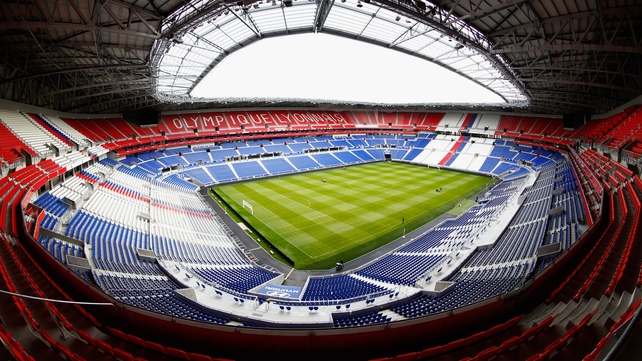
Stade de Lyon (Lyon)
Olympique Lyonnais’s new stadium opened in January of this year and will enjoy a capacity of 59,000 for this summer’s tournament. Northern Ireland take on Ukraine here on 16 June, while it also hosts the Group E clash between Ireland rivals Italy and Belgium on 13 June.
The stadium was also awarded one of the semi-finals and the magnificent arena will certainly do justice to the prestigious event.
Another pure football stadium, which will generate an electric atmosphere.
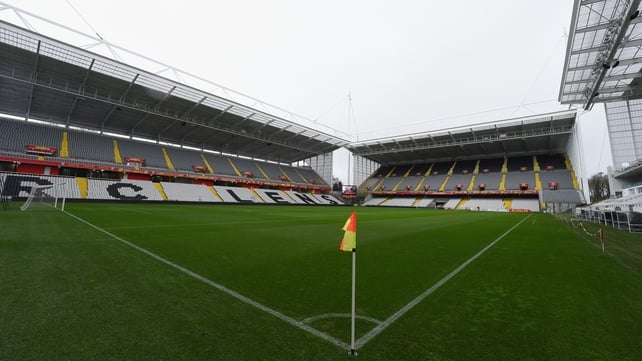
Stade Bollaert-Delelis (Lens)
Rebuilt for Euro 2016, Stade Bollaert-Delelis is located in the former mining town of Lens, which is just 28 kilometres away from Lille in the north of France.
Originally built by unemployed miners, the stadium has undergone several makeovers throughout the past 50 years and was used as a venue in the 1984 European Championships and more recently at the 1998 World Cup.
The capacity for Euro 2016 is 35,000 and will be packed to the rafters for the group game between British rivals England and Wales on 16 June.
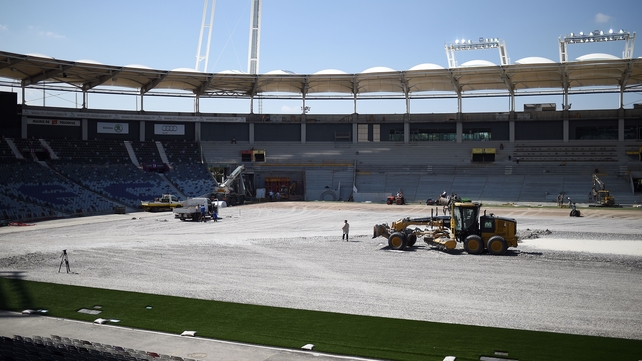
Stadium de Toulouse (Toulouse)
Built for the 1938 World Cup, the 33,000-capacity stadium is located on an island in the centre of the city, and was nicknamed mini-Wembley due to it’s likeness, if smaller in scale to the original iconic London arena.
Toulouse is also a rugby stronghold and the local side play their big European fixtures at the stadium.
Ireland opponents Italy and Sweden go head to head here on 17 June, while the stadium will also stage a round of 16 clash.
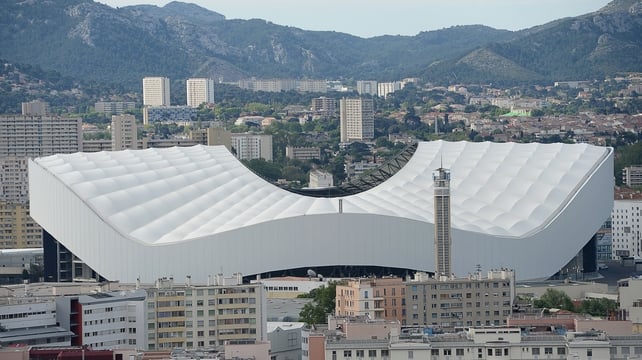
Stade Vélodrome (Marseille)
Possibly the most iconic venue in French football, the Stade Vélodrome is unrecognisable from the glory days when l’OM (Olympique de Marseille) were a European powerhouse with Chris Waddle and Jean-Pierre Papin in a star-studded side.
The new, state of the art design opened in 2014 and will boast a capacity of 67,000 for the tournament. England start their Euro 2016 campaign here against Russia on 11 June, while the stadium was also awarded the other semi-final.
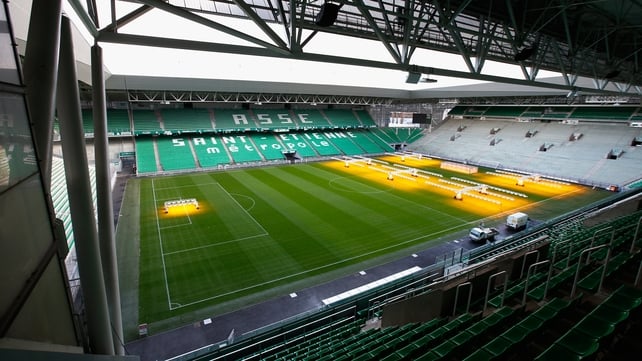
Stade Geoffroy Guichard (Saint-Étienne)
Renowned for its white-hot atmosphere, the Cauldron is another of France’s iconic club stadiums and is home to AS Saint-Étienne, boasting a capacity of 42,000.
The stadium is another which hosted games in the 1984 Euros and the 1998 World Cup, as well as staging Rugby World Cup games there in 2007.
England’s clash with Slovakia takes place here on 20 June, while a round of 16 game will also take place at the venue.







